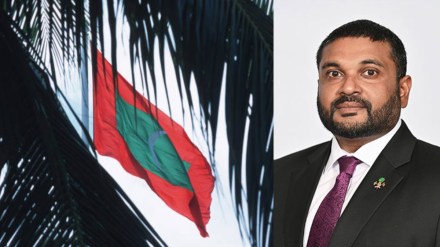The upcoming visit of Maldives Defence Minister Mohamed Ghassan Maumoon to India on January 7-8, 2025, is a significant milestone in the evolving relationship between the two nations. This visit, the first by a Maldivian Defence Minister since the government of President Mohamed Muizzu took office in November 2023, comes in the wake of political tensions surrounding the presence of Indian military personnel in the Maldives. While Muizzu’s administration initially campaigned on a promise to remove foreign troops from the country, the visit signals a shift toward recalibrating the Maldives’ security ties with India.
A Shifting Dynamic in Defence Cooperation
Under President Muizzu, there was a strong push to end India’s military presence in the Maldives, a move that created friction between the two countries. Indian personnel, stationed in the Maldives primarily for humanitarian assistance and technical support for aviation platforms, were a point of contention. However, following extensive negotiations, these troops were replaced with civilian staff, ensuring continued cooperation without inflaming domestic political concerns.
Minister Maumoon’s visit, therefore, marks an important moment in reaffirming the strategic defence ties between the two nations. It follows several rounds of defence dialogues, including the 5th round of the India-Maldives Defence Cooperation Dialogue in September 2024. This suggests that while there may have been political rhetoric regarding foreign military presence, the Maldives understands the importance of its relationship with India, especially in the realm of security.
India’s Strategic Interest in the Maldives
The Maldives holds immense strategic value for India, particularly in maintaining security in the Indian Ocean region. With growing concerns over maritime threats such as piracy, illegal fishing, and terrorism, both countries share a vested interest in ensuring stability and peace. The Maldives’ vast Exclusive Economic Zone (EEZ) makes it an essential partner in safeguarding vital sea lanes that are crucial not just for India but for global trade and security.
In recent years, India has bolstered its defence cooperation with the Maldives, offering training to the Maldivian National Defence Force (MNDF) and providing critical defence platforms and surveillance systems. Joint military exercises like Ekuverin and India’s support for infrastructure projects such as the MNDF’s Ekatha harbour at Uthuru Thila Falhu are concrete examples of this growing collaboration.
Economic and Geopolitical Implications
Beyond defence, India plays a pivotal role in the economic stability of the Maldives. India’s financial support, including a currency swap agreement worth USD 400 million and a comprehensive INR 30 billion package, has been instrumental in helping the Maldives address its economic challenges. As President Muizzu continues to walk the tightrope between strengthening ties with India and maintaining a neutral foreign policy, India’s assistance—especially in infrastructure development like the Greater Male Connectivity Project (GMCP)—remains vital.
Moreover, India’s position as a “First Responder” in times of crisis, such as the 2014 water shortage in Malé and during the COVID-19 pandemic, has further solidified its role as a reliable and strategic partner.
A Relationship Built for the Future
Minister Maumoon’s visit to India is more than just a diplomatic trip—it represents the recalibration of a crucial bilateral relationship. Despite the earlier tensions, the ongoing collaboration in defence, maritime security, and economic development underscores the deepening ties between the two nations. The Maldives, in turn, continues to be a key partner for India in the Indian Ocean region, where both countries face common challenges and opportunities.
As the geopolitical landscape of the Indian Ocean continues to shift, India and the Maldives are strategically positioned to navigate these changes together. The Minister’s visit signals that both nations are committed to strengthening their cooperation, ensuring a more secure and stable region for the future.
